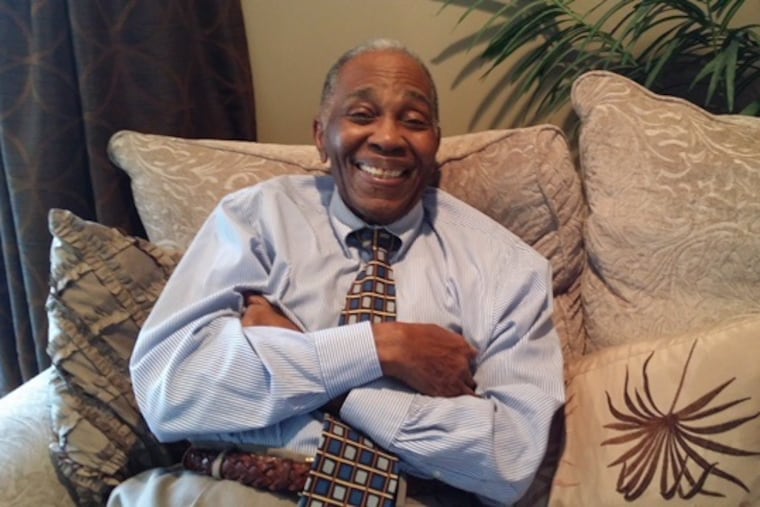Arthur Lewis, 89, a top official of the U.S. Drug Enforcement Administration
Mr. Lewis started out as a clerk in the U.S. Department of Treasury in New York. He ended up as acting deputy director of the DEA, the first African American to hold that job.

Arthur Lewis, 89, of Cherry Hill, who overcame racial barriers to become a top official of the U.S. Drug Enforcement Administration, died Sunday, Aug. 18, of vascular disease at his home.
During a 24-year career beginning in 1956, Mr. Lewis rose from clerk in the Treasury Department in New York City to acting deputy director of the DEA in Washington in 1978. He was the first African American to be second-in-command of the DEA.
In a statement at the time of his retirement, the DEA said: “The level of achievement reached throughout his career was not only groundbreaking for that era, but truly inspiring to those who followed.”
While building his career, Mr. Lewis worked undercover for 12 years, posing as a drug dealer. The work took him to Europe, Canada, and Mexico, and to neighborhoods in New York, Chicago, and Detroit.
His job was to infiltrate heroin rings. In one instance in Detroit, when his cover was blown, drug traffickers put out a hit on him, forcing him to move his family to New York.
“It was hard work, and it was difficult,” he told The Inquirer in 2014 when he received the Valor Award from the Camden County East NAACP. “But to me, it was very worthwhile.”
In 1970, he was named deputy regional director for Michigan, Ohio, and Kentucky, and in 1971, he became special agent in charge of the agency’s Mid-Atlantic region, the first African American to do so.
His office was in Philadelphia, where he formed a joint narcotics task force consisting of the DEA, Philadelphia narcotics officers, the FBI, Secret Service, and other law enforcement agencies interested in curbing the flow of illegal drugs.
“He created the model for a number of major partnerships that still exist today,” said his daughter, Jennifer Lewis-Hall. “Police working narcotics were instrumental in starting those partnerships.”
Like many African American drug agents, Mr. Lewis found he wasn’t welcome on the job in the 1950s. “They weren’t very nice about it,” he said of his white colleagues in the Federal Bureau of Narcotics in New York.
In 1977, just before he was named acting deputy of the DEA by President Jimmy Carter, Mr. Lewis joined a group of black agents in a class-action lawsuit against the U.S. Department of Justice. The lawsuit alleged unequal treatment in promotion policies and pay.
“It was time for black people to move ahead,” he said in 2014. “I felt I had an obligation to help everyone else.”
Bolstered by Mr. Lewis’s testimony, a judge ruled that black agents were assigned to work undercover more often than their white counterparts, putting them in greater danger. The ruling paved the way for other bias lawsuits in law enforcement.
“He fought for parity for blacks and women within the DEA,” said his daughter. “He had to persevere and push forward against what had been an established way of thinking, so legally there would be more opportunities for agents in the [Bureau of Alcohol, Tobacco, Firearms and Explosives], Secret Service, and the FBI.”
In 1980, Mr. Lewis retired and became vice president of government affairs for the Sands Hotel & Casino in Atlantic City. He retired in the mid-2000s.
Born in New York, Mr. Lewis attended public schools before graduating from the New York City College of Technology. He served with the Army in Korea.
His son, Hunter, described Mr. Lewis as “a very strong man, with integrity, strength and courage,” who skillfully juggled work and family.
“His number-one priority was his family,” his son said. “He loved and protected us. When our family was threatened, he made sure we were safe. He was always attentive to our needs.”
Mr. Lewis was a co-founder of National Organization of Black Law Enforcement Executives. Along with his wife, Evelyn, he started the Cherry Hill African American Civic Association, which raises money for scholarships.
His wife, whom he married in 1953, died in 2010.
Besides his daughter and son, he is survived by another son, Jeffrey; seven grandchildren; 12 great-grandchildren; and one great-great-grandchild.
There will be a viewing from 6 to 8 p.m. Friday, Aug. 23, at St. Bartholomew’s Episcopal Church, 1989 Marlton Pike East, Cherry Hill. A second viewing will be held starting at 9:30 a.m. Saturday, Aug. 24, at the church, followed by a funeral service at 11. Interment will be in Locustwood Memorial Park, Cherry Hill.
Donations may be made to the Arthur Lewis Scholarship, c/o Cherry Hill African American Civic Association, P.O. 1404, Cherry Hill, N..J 08034.